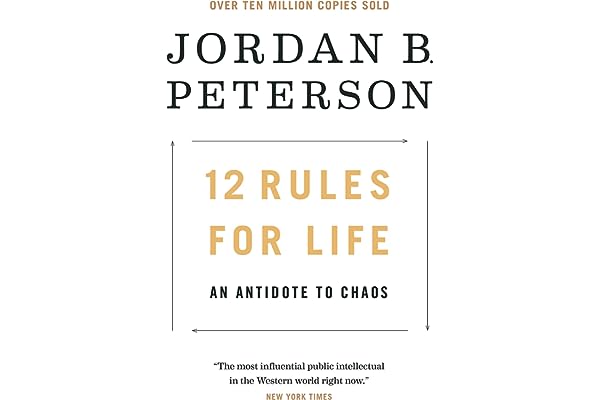One Sentence Summary
Jordan B. Peterson’s 12 Rules for Life: An Antidote to Chaos is a self-help book that provides an antidote to life’s chaos by teaching readers 12 rules to live by.
Book Genre
This book is a work of non-fiction in the genre of self-help.
Main Topic of the Book
The main topic of this book is how to live a meaningful life, with an emphasis on finding an antidote to the chaos and confusion of modern life.
Key Ideas
The key ideas of the book include:
- The importance of morality, responsibility, order, and meaning in life
- The power of facing one’s fears and taking the necessary steps to shape one’s life according to one’s values
- The need to have meaningful relationships with other people
Main Parts of the Book and Short Summary
The book is divided into twelve main parts, each corresponding to one of the twelve “rules for life”. The book begins with an introduction that explains the need for people to take an active role in shaping their lives. It then provides an overview of the twelve rules, which are:
- Stand up straight with your shoulders back – This part explains the importance of having a strong sense of self-worth and taking personal responsibility for one’s life.
- Treat yourself like someone you are responsible for helping – This part explains the importance of having compassion for oneself and living according to one’s values.
- Make friends with people who want the best for you – This part explains the importance of having meaningful relationships with other people.
- Compare yourself with who you were yesterday, not with who someone else is today – This part explains the importance of appreciating and celebrating one’s progress, rather than comparing oneself to others.
- Do not let your children do anything that makes you dislike them – This part explains the importance of providing a safe and nurturing environment for children to grow in.
- Set your house in perfect order before you criticize the world – This part explains the importance of taking an active role in shaping one’s life and environment.
- Pursue what is meaningful (not what is expedient) – This part explains the importance of pursuing activities and goals that are meaningful and fulfilling, rather than those that are convenient and quick.
- Tell the truth – or, at least, don’t lie – This part explains the importance of being honest and living according to a personal code of ethics.
- Assume that the person you are listening to might know something you don’t – This part explains the importance of being open-minded and humble when interacting with others.
- Be precise in your speech – This part explains the importance of being precise and articulate in communication.
- Do not bother children when they are skateboarding – This part explains the importance of allowing children to explore and discover the world in their own way.
- Pet a cat when you encounter one on the street – This part explains the importance of taking pleasure in the simple joys of life and finding a path to harmony and balance.
Key Takeaways
The key takeaway from this book is that life is best lived when it is meaningful and when one takes an active role in shaping his or her own life according to moral and responsible values.
Author’s Background and Qualifications
Jordan B. Peterson is a Canadian clinical psychologist, cultural critic, and professor of psychology at the University of Toronto. He is also a public speaker and author whose work focuses on human characterization and the psychology of belief, as well as the importance of taking responsibility for one’s life and actions.
Target Audience
The book is intended for mature readers and those who are seeking to improve their personal life and live a more meaningful life.
Publisher and First Publication Date
The book was published by Penguin Random House in 2018.

